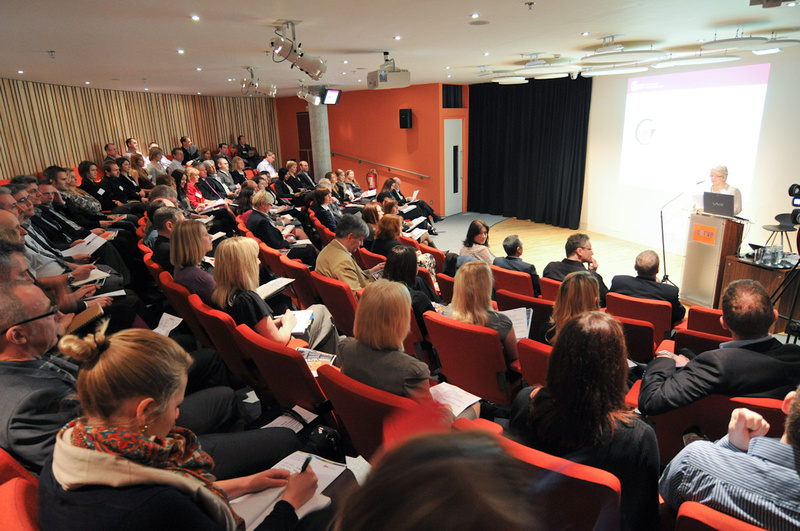Keeping a Conference Running Smoothly – the role of the facilitator.
How often have you been to a conference in a great venue, with lovely food and potentially inspiring speakers, yet there was something missing? Perhaps the timing was out, the introductions clumsy or it was just, well, boring? Whether the conference is organised by your company, trade association, a charity, community group or statutory body, it must achieve its aims and objectives and be a positive experience for organisers, speakers and delegates.
The facilitator’s job is to chair the event, introduce the speakers, lead question and answer sessions, ensure fair play in debates, summarise the issues and any conclusions, and along the way add a lighter note whenever appropriate. They need to tactfully keep speakers and discussions to their allocated timings and be able to ad-lib and improvise if there are any glitches.
As a freelance facilitator, I have had to cope with an MP arriving late and speaking for two minutes rather than the expected thirty, before shooting off to another appointment. There was the guest who left all their notes on a train, and another who found the previous speaker had gone off-brief and covered everything they had intended saying.
As the person standing on the stage, leading the event, it is the facilitator whom delegates come to if the room is too hot (or too cold), if their conference pack is missing a vital paper, or if a family emergency means they need an urgent taxi.
So who should be given this important role? Perhaps “Mike from Accounts” does have a great sense of humour, is a stalwart of the local “am-dram” group and knows the company inside out, but does he have the necessary air of authority and will he be respected by a couple of hundred delegates, many of whom remember him as the star of the office party karaoke?
The MD or Chairman would have the authority to lead the day, but would anyone be willing to ask the necessarily challenging questions if their next promotion could be in jeopardy? The MD or Chairman might be better used as a keynote or “star” speaker.
Especially if more than one organisation is arranging the conference, or if the subject matter is controversial, a well-briefed independent facilitator would be the solution. He or she might also give status to your conference and attract delegates and speakers.
So how can a conference organiser help the facilitator?
- Get them involved at an early stage. I always ask to attend an early planning meeting. A dispassionate outsider can also often spot potential problems or can point out that the proposed programme will leave delegates either snoring or leaving early.
- Ask if your facilitator has any special skills that will help give your event a memorable angle. As a broadcaster, I have done live interviews at conferences, as an alternative to formal presentations, and have pre-recorded vox pops and interviews, for example, with the victims of crime.
- Provide a detailed breakdown of how you wish the conference to run and the atmosphere you wish to create.
- Discuss the aims and objectives of the event so the facilitator can keep them in mind during discussions, debates and question and answer sessions.
- Provide briefing notes on topics to be covered and speakers’ biographies.
- Supply a list of delegates, their job titles and areas of interest.
- On the day, introduce the facilitator to the conference venue staff and show them around the venue. At a recent conference I announced it was lunchtime – and then realised I had no idea where to direct the delegates to go. Luckily the smell of food led them in the right direction! Also allow time for the facilitator to check technical details such as microphones for themselves – after all, if there is a problem mid-conference, he or she is the one who will have to ad-lib through the delays while they are sorted out.
If you are confident you have the right facilitator you, as the conference organiser, will be free to sort out the behind-the-scenes details or if a professional events manager is employed, to relax, network and enjoy the event yourself. The right facilitator could make the difference between a productive conference and the one that everyone just wants to forget.
(First published in Suffolk Business magazine)
